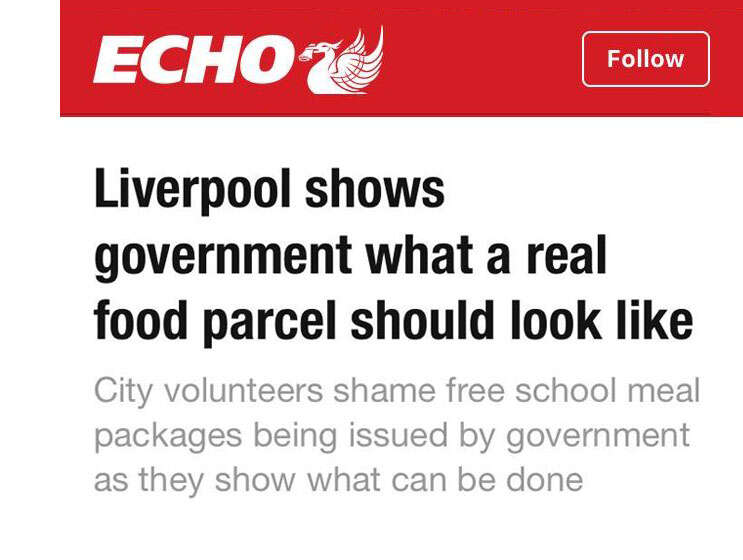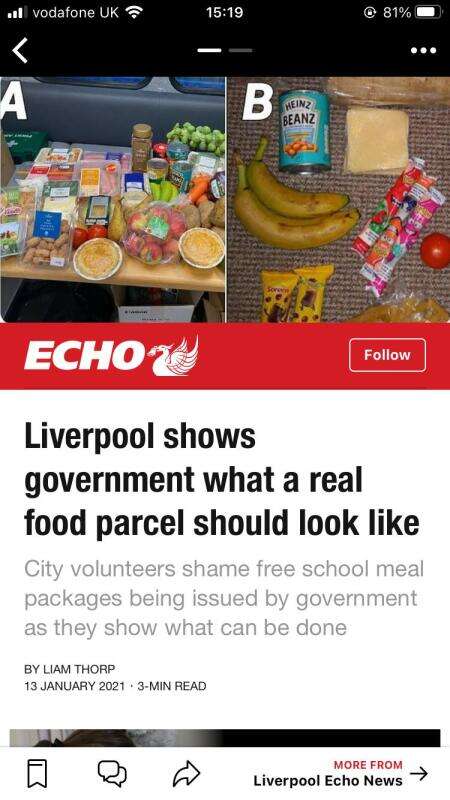
An experiment conducted by Reach, the UK’s largest newspaper publisher, found that Facebook Instant Articles get seen by almost a third more readers than stories not using the mobile-friendly format.
Flagship regional title the Liverpool Echo tested the impact Instant Articles were having on advertising revenue and engagement by turning them off and then back on and discovered they increased reach by 30%.
Reach (then Trinity Mirror) has been using Instant Articles since its launch in 2016 but wanted to verify how useful they were compared to click-throughs going straight to its own websites or apps.
Reach head of social media and engagement Dan Russell said: “It was clear from the Liverpool Echo experiment that our readers prefer the Instant Articles. Up until this point we simply didn’t know and although there was speculation we needed solid evidence to inform future decisions.”
Russell described it as a “business-defining conclusion” that “shaped our Facebook strategy” across the rest of Reach’s regional titles.
Russell added that the strategy now has “real value for us in terms of increased reach, newsletter subscriptions and audience conversions”.
If publishers choose to use Instant Articles links their pages will open in a quicker-to-load mobile-friendly format within the Facebook app rather than loading on their own site.

Liverpool Echo example of a Facebook Instant Article
Facebook added a “call to action” button option for Instant Articles in 2019 which publishers can use to publicise newsletters, apps or Facebook pages.
According to figures published by Facebook, Reach’s regional titles outside London signed up more than 35,000 newsletter subscribers between February 2019 and May 2020 as a result of using the tool.
The Liverpool Echo made up just over 17% of all newsletter sign-ups in that period at the publisher, which owns about 150 news brands including the Daily Mirror, Daily Express, Daily Star and Manchester Evening News.
“We know our audience values newsletters, but promoting them has traditionally been down to pushing them through our websites or specifically writing stories about new launches,” Russell said.
“Using the CTA function in Instant Articles has given us another promotional asset and the take up has been very good.”
He added: “Facebook Instant Articles are just one element of Reach’s social media and engagement strategy.
“We are always looking to collaborate with platforms and news industry partners to ensure a sustainable eco-system that protects vital news providers and our investment in journalism.”
Instant Articles allow publishers to sell their own ads, which would see them retain all the revenue, or they can rely on Facebook to fill the ad spaces and allow them to keep an estimated 70% of the money.
The Guardian notably pulled out in 2017 over what it deemed a “woeful” revenue return, saying it could make more money sending readers to its own website where it could also promote its membership scheme.
[Read more: US publishers happy with Facebook News cash for content – but say project is a ‘PR move’]
Facebook is currently preparing for the UK launch of the latest project it hopes will keep news bosses happy, a Facebook News tab which pays publishers for the use of their content.
But it says it is still seeing “strong uptick” for revenue, traffic and engagement metrics for publishers using Instant Articles around the world.
It said in December that the top 100 publishers using Instant Articles in the US and Canada saw RPM (revenue per 1,000 impressions) growth of 48% year-on-year in 2020.
The top 500 publishers globally saw RPM growth of 27%, it added.
More than 50,000 publisher pages use Instant Articles and more than 5,700 publishers either signed up for the first time or rejoined during 2020.
Facebook said it wants to make sure the product “continues to deliver value to publishers” and is experimenting with adding more ad formats and adding better performance metrics.
Email pged@pressgazette.co.uk to point out mistakes, provide story tips or send in a letter for publication on our "Letters Page" blog
